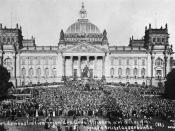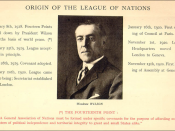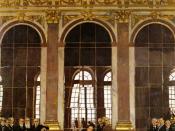Introduction
___________________________________________________________________________
In 1939, the world witnessed the beginning of arguably the most devastating of all combat in the history of mankind, World War II. The conflict would ravage the entire European continent and far beyond extending into the far reaches of the planet, stretching from the lands of the African continent and waters of the Atlantic, to the Philippine islands in the Pacific. Previously, tensions had arisen with Germany's annexation of Austria in March of 1938, along with the German crisis in Czechoslovakia. Further, Japan had invaded China in 1937, after overtaking Manchuria in 1931. In August of 1939 German Fuhrer Adolf Hitler had negotiated to provide a partition of Poland to Soviet Russia prior to its invasion, in addition to other smaller territorial provisions to be taken under the Iron Curtain. The 'Axis', referring to the aggressive expansionist ensemble of fascist and militaristic regimes included Germany, Japan and later Italy.
Facing off with the Axis in 1939 were the Allies, whose members included, principally and among others, Great Britain and France. At the outset of the war, the United States had taken a neutral stance, before joining the Allies after the Japanese attack on the US naval base in Pearl Harbor on December 7th of 1941.
America's hesitancy was shaped by various factors, namely "the desire to avoid entanglement in European affairs...the conviction that intervention in World War I was wrong [and] the focus on domestic issues during the Great Depression. " The following shall analyze and explain why the United States did not enter World War II until December 8th of 1941 and advocates of American intervention were not able to do so previous to Pearl Harbor. To obtain a clear understanding of America's late entry, one must firmly grasp the pertinent aspects of US history...



Why did the US enter the war late....
The writer has addressed many of the issues surrounding this event thoroughly.
4 out of 4 people found this comment useful.